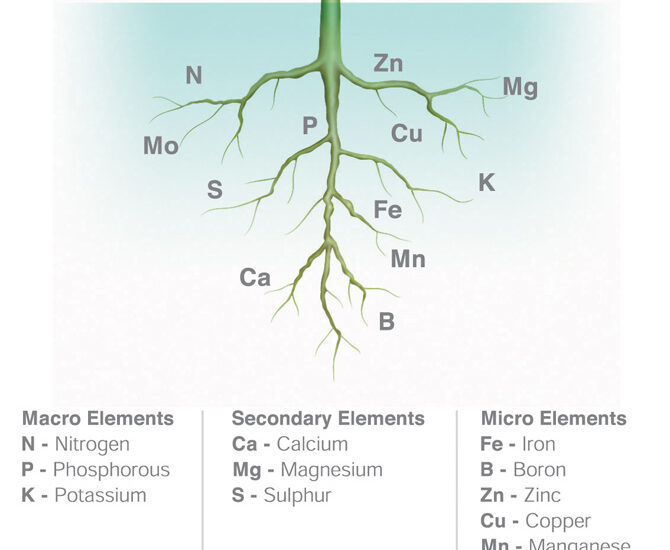Growing healthy plants in India has been a big challenge for the farmers lately because of the increasing air and soil pollution harming the growth of the plants. There are a lot of things necessary for a growing plant to be healthy and the major thing is the nutrients. Sulphur suppliers in India manufacture and supply various sulphur rich fertilizers which are rich in sulphur nutrient which proves to be very healthy for the plants but apart from sulphur, there are many other nutrients which plants need. In this article, we will be discussing about different major nutrients which plants need to grow healthy
Importance of nutrients explained in detail
Micronutrients remain as salt beneath the soil surface. As a result, plants ingest these elements in the form of ions. The macronutrients are eaten in greater quantities and account for nearly 95% of a plant’s total biomass in terms of dry matter weight. Plant tissue contains micronutrients in parts per million (ppm) amounts ranging from 0.1 to 200 ppm, or less than 0.02 percent dry weight. Without the addition of nutrients like fertiliser, most soil conditions across the world can feed plants adapted to that climate and soil with sufficient nourishment for a complete life cycle. If the land is harvested, however, it is important to intentionally adjust soil fertility by adding fertiliser in order to stimulate robust growth and improve or maintain production.
Essential elements are taken up by plants from the earth via their roots and from the air via their leaves. Cation exchange, in which root hairs pump hydrogen ions (H+) into the soil via proton pumps, allows for nutrient absorption in the soil. These hydrogen ions dispense with cations linked to negatively charged soil particles, making the cations accessible for root absorption. Stomata open in the leaves to take in carbon dioxide and exhale oxygen. In photosynthesis, carbon dioxide molecules are employed as a carbon source.
Major essential nutrients for healthy plants
- Nitrogen
Nitrate which is the form of nitrogen that plants use is responsible for the development of plant leaves and helps foliage grow strong. Also by helping with the chlorophyll production, it is responsible for the plants for their green coloring. With the availability of nitrogen, plants witness rapid growth and a considerable increase in seed and fruit production
- Phosphorous
With the availability of phosphorus, the roots and flowers of the plants are strengthened and it also helps the plants to withstand harsh winters and extreme cold. It also helps the plants to defend other harsh environmental stress.
- Potassium
Plants absorb potassium in greater quantities than any other mineral element, with the exception of nitrogen and sometimes, in rare situations, calcium as well. It aids in protein synthesis, photosynthesis, fruit quality, and disease prevention. Potassium therefore helps in early growth of plants as well
- Magnesium
Magnesium is found in all green plants’ chlorophyll and is required for photosynthesis. It also aids in the activation of several plant enzymes required for development. Plants get magnesium via soil minerals, organic matter, fertilisers, and dolomitic limestone.
- Sulphur
Sulphur WDG is considered to be an essential nutrient for the production of protein. Sulphur is also responsible for the proper growth of the plants and helps them to withstand cold and other environmental hazards. It also aids in the formation of seeds and produces enzymes and amino acids required for the plant growth
- Calcium
Calcium assists in the creation and expansion of cell walls. This is critical because healthy cell walls aid the plant’s resistance to illness. It is also required for the plant’s metabolism and nitrogen absorption.

